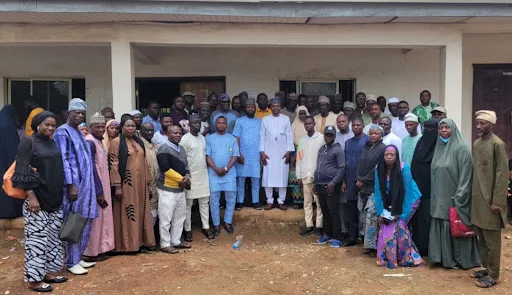… Govt targets youth, food security with landmark agricultural initiative

The Kwara State Government, in partnership with the International Institute of Tropical Agriculture (IITA) through the Kwara Agricultural Development Project (KWADP), has flagged off the training of lead maize farmers for late season farming in Ilorin, the state capital.
Under the initiative, 100 lead farmers drawn from across the state will undergo intensive training, with each expected to train an additional 100 farmers, bringing the total number of beneficiaries to 10,000 farmers.
Declaring the programme open, the Commissioner for Agriculture and Rural Development, Dr. Afees Abolore Alabi, described it as a landmark achievement for the state. He explained that the programme is specially dedicated to young farmers, with Kwara emerging as one of only four states in Nigeria selected to pioneer the initiative.
Dr. Abolore urged participants to remain fully committed, stressing that their discipline and dedication would determine the success of the initiative. He commended Governor AbdulRahman AbdulRazaq for his exceptional commitment to agriculture and thanked IITA for its technical support.
Managing Director of KWADP, Dr. Khadijat Ahmed Alege, also applauded the Governor’s foresight, urging participants to take the training seriously as their knowledge would be multiplied through thousands of other farmers across the state.
Speaking on behalf of the participants, Alhaji Salaudeen Mukaila expressed gratitude to the government, describing the interventions such as free tractorization and input support as “life-changing” and reassuring for grassroots farmers.
The training, focused on maize production for late season farming, is expected to further position Kwara as a hub of agricultural innovation while reinforcing the government’s long-term food security strategy.
According to officials, by combining training with practical interventions, the initiative will empower young farmers with modern knowledge and resources to drive productivity, build resilient food systems, and secure sustainable livelihoods across the state.
Leave a Reply